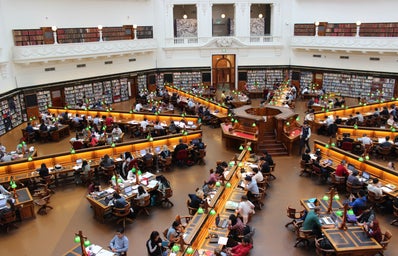For many university students, there is a four word question that can induce feelings of anxiety, frustration, and even embarrassment. It can follow with further interrogation, leading you to feel that you need to justify the choice you have made:
“What do you study?”
If, for you, this sounds like a simple, harmless question asked by your grandparents every Sunday; I can bet that you’re a student of Mathematics or Natural Sciences – hell, even Business or Management studies.
But, if the feelings noted above resonate with you, you are likely to be a student from the departments of Humanities or Arts; otherwise known as the ‘soft’ or ‘mickey-mouse’ subjects.
Subjects from the schools of Humanities and Arts consist of the academic analysis of the human experience: whether it be History, Literature, Philosophy and so on. These topics of study make up our everyday lives and have been studied and written about by some of the greatest minds whom many of us then choose to study at university.
Yet, to pursue a course which at first glance does not hold a specialised practical skill, it may appear to conflict with the ever-present logistics of university being a tool for employment. For, in today’s corporate-driven society, a university degree is deemed simply as a qualification, a vital step taken in order to attain a solid career and financial security.
So, does anyone go to university to simply learn anymore? Or is it just a means to an end in our society caught up in the Wolf of Wall Street ideology, where success is measured by social strata and the pennies in one’s pocket. Is this what we should now strive towards in order to feel like we have achieved something and gained respect? Is that really the motivator nowadays?
If we are honest with ourselves, many will find that the one thing that’s giving us a sense of insecurity in relation to our life choices are the expectations of others. It is what others believe to be the ideal ‘stage’ in life that threatens us. And with this, many of us yearn for structure and guidance in our lives, and are therefore fearful of lacking a narrow career path.
Yet, for Georgina Varley, a second year English student, her love of literature made her course the obvious choice, and deems her options to be open as she has “chosen a subject that doesn’t have a fixed career direction.”
Along with this, Kelly Clarke, a second year Sociology student, feels that a degree is much more than a title: “It shows you are able to commit to something and overcome obstacles. The university lifestyle has taught me the most valuable lessons; meeting new people enriches you as a person; there is so much more to university than a degree, it’s a stepping stone between leaving school and entering the real world.”
Georgina seconds this, she believes university is about developing as a person and finding what makes you happy: “well paid jobs aren’t always the most enjoyable; I don’t want to hate every working day and only have retirement to look forward to.” Although, she has experienced negativity: “in my first year, one girl commented that, unlike English, she studied a ‘real’ subject. Although it angered me, I know I couldn’t see myself studying anything else.”
It seems apparent that, unless you have the money to prove it, people tend to devalue talent in the humanities and arts. But what needs to be made clear is the fact that not everyone has the competence for Maths and Science, as is the case for Humanities and Arts – yet they have both evidently served a purpose, for neither is inherently more valuable than the other.
The ability to be fearless is what contributes to society and makes changes: imagine the world we’d be living in if Charles Darwin, Aristotle and Andy Warhol alike restricted their minds according to the prevalent social and cultural expectations?
Now, I’m not saying you’re a mind-numbing sheep if you study Medicine or Chemical Engineering, if that’s what you want to do, that’s wonderful – but don’t allow that fear driven by others to be the sole determinant of your future. Because, believe it or not, if studying something excites you, that is a good enough reason to do it. Don’t allow the expectations set by society to inhibit the inherent human drive we have to contemplate and discover.
Yes, our beloved higher education system has become a corporate business providing a service to paying customers. But, if we are brave enough to do as we wish with the tools we are privileged to be given, and with our ultimate goal being happiness – and not just that 2:1 – could we become a generation of graduates who are driven by aspirations rather than expectations?
Edited by Georgina Varley
Image Sources:
http://www.damnlol.com/forever-a-loan-9068.html
https://landing.athabascau.ca/file/download/130187

